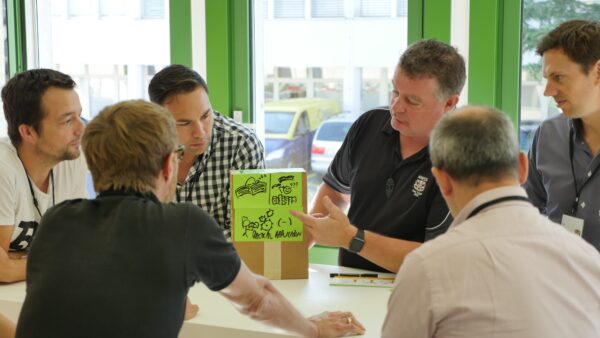What culture dominates your organisation? And why care about creating a constructive culture?
Culture & Leadership Lab with Human Synergistics Consulting: The Future of Work is going to be characterised by increased automation and AI integration, greater flexibility with remote and hybrid work models, a focus on digital skills and continuous learning, and an emphasis on employee well-being and work-life balance.
While not everyone can work from home or their own hours, even traditional workers will more likely move to three-to-four-day weeks and more flexible at-work arrangements.
To attract talent organisations will also offer enhanced entitlements around cost of housing and caregiver support to name a few. And as more students need to borrow money for their education, organisations will look to offer repayment schemes to attract talent.
The value of qualifications versus the actual skillsets to stay relevant will also come to the fore. Learning agility – the ability to learn fast – will become an employee’s key asset.
Diversity of workplace demographics as we know them will continue to change substantially and the focus will move from meeting demographic representation to the value creation available from diversity which is substantial – at least for those constructive organisations that can leverage their diversity.
Hierarchies will become a thing of the past as people will work even more collaboratively than they do now, and so leadership will become more a facilitation role than the positional exercise of power that still resides in most organisations today.
The Future of Work will become a reality, but not all organisations will be able to utilise the opportunity to the same degree. We can predict those organisations most likely to adapt and prosper and those who will be constrained by their cultures.

The team at Human Synergistics.
Constructive Cultures
Constructive organisations will adapt by fostering an environment where employees feel valued, motivated, and empowered. A constructive culture will promote a safe environment that will allow its employees to be creative and innovative within the changing parameters of work, enabling the organisation to adapt quickly to technological changes and evolving market conditions.
Effective communication and teamwork are hallmarks of a constructive culture, ensuring that employees are aligned with organisational goals and can collaborate effectively. Continuous learning and development are emphasised, helping employees stay current with technological advancements and evolving job requirements, while also supporting their personal growth.
“In essence, it is the Constructive Organisations that will create The Future of Work…”
Passive Cultures
Organisations with a passive culture might talk about change but they won’t act quickly. They will be more reactive and will initially deny the Future of Work trends as valid for them and refer back to the old line ‘If it ‘aint broke, don’t fix it’.
The risk of trying new things will constrain their response and when they do respond it will be half-hearted to comply with the new ‘requirements’. Passive cultures will be less likely to prioritise continuous learning and upskilling, leaving their workforce unprepared for the changing job requirements and technological advancements of the Future of Work.
Aggressive Cultures
Aggressive cultures might be slower to adopt flexible work arrangements preferring traditional, in-office work setups where performance can be closely monitored. This reluctance will put them at a disadvantage in attracting and retaining top talent who prioritise worklife balance and flexibility, and so they will invest heavily in attraction and pay more to attract and ‘trap’ talent.
Aggressive cultures will prioritise performance and efficiency by adopting new technologies and automation tools rapidly to enhance productivity and reduce costs. This approach can lead to significant operational efficiencies but they are likely to overlook the impact on employees. They are more likely to foster a highly competitive work environment, emphasising individual achievements and performance metrics.
In today’s dynamic work environment, organisations must focus on cultivating a positive culture, offering flexible work arrangements, offering enhanced entitlements, promoting continuous learning, embracing diversity, and rethinking traditional hierarchies. Prioritising these considerations will help build a resilient and forward-thinking workplace.
Written by Neil McGregor, Lead Consultant at Human Synergistics New Zealand.
Human Synergistics is dedicated to helping organisations transform and grow through their people. With extensive experience in creating lasting change for individuals, teams, and entire organisations, they can boost your leadership and culture. Interested in a positive transformation? Contact Neil and the team at [email protected]. www.hsnz.co.nz











